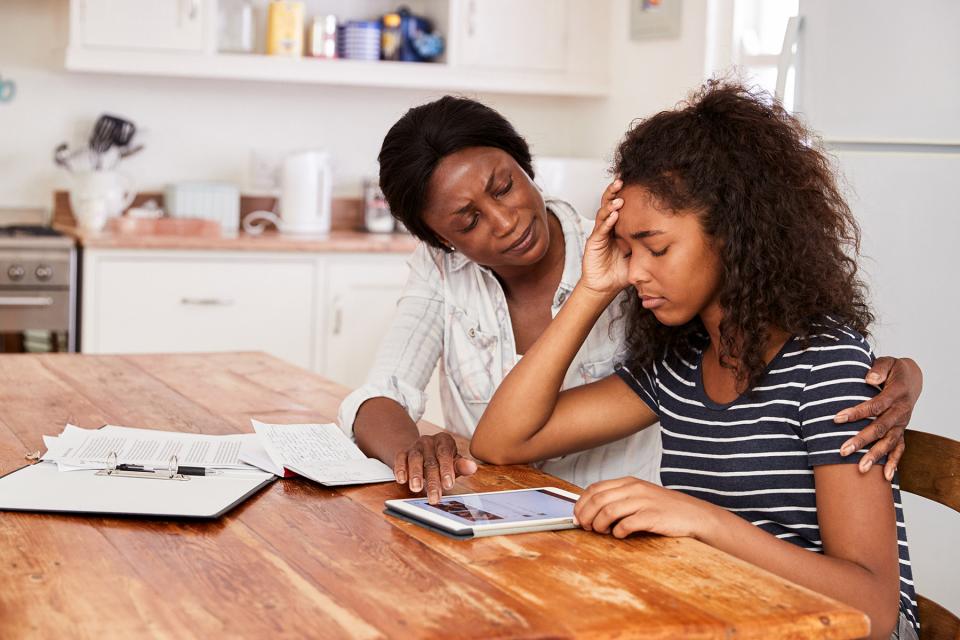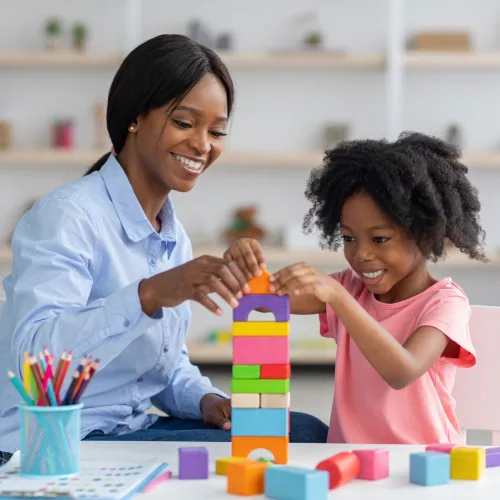Signs and Symptoms of Stress in Children

After a divorce or separation, parents are often worried about their children's emotional health and resilience. New routines can be notoriously hard to grow accustomed to, and with the added transitions of new homes, new schools, and other big changes, life after divorce can be a serious source of stress for children.
Identifying Stress
Parents play a vital role when it comes to looking after their children's emotional health, including keeping stress and anxiety to a healthy minimum. But to help a child who is overcome by worries, parents must first be able to recognise the different symptoms of stress in children.
Every child is different, but there are common symptoms and behaviours that parents can use as a litmus test when determining if their own child is struggling with anxiety.
Physical symptoms of stress
In both adults and children, stress can have physical effects on our bodies and wellbeing. When determining whether stress is the source of a physical symptom, it's extremely important to rule out other conditions that could be at the root of the issue. Always consult your child's pediatrician for advice.
Common physical symptoms of stress in children include:
- Digestive and appetite issues, such as stomachaches, upset stomachs, or a loss of appetite
- Headaches
- Sleep-cycle issues, such as trouble falling asleep, staying asleep, or having frequent nightmares
- Bedwetting
It's important to stress that these physical symptoms can point to other issues besides stress, making consulting with your child's pediatrician absolutely vital for ruling out other possibilities.
Emotional and behavioural symptoms of stress
Stress has a profound effect on our mental state and abilities, and children can see a decrease in performance at school, in activities, and other areas of their life as a result. behavioural and emotional symptoms of stress are not always easy to identify, so parents should be keeping a careful eye on children immediately after their divorce and after any other big changes in their child's life.
Common emotional and behavioural symptoms of stress in children include:
- Regressive behaviour, or when a child engages in behaviours not appropriate for their age. Examples of regressive behaviour in older children may include thumb-sucking, throwing tantrums, engaging in baby-talk, or the inability to sleep without a nightlight.
- New or recurring fears
- Inability to relax or calm down
- Trouble with controlling their emotions
Helping children with stress
Co-parents can employ a number of strategies to help their children cope with and overcome stress. Strategies for helping children with stress include:
- Working with your co-parent to keep children's routine consistent and predictable after divorce
- Keeping your children informed of any and all upcoming changes to their routine, such as parenting time changes, holidays, etc.
- Making sure to schedule time for calm and relaxed activities with your children
- Keeping your child's academic and activity schedule from getting overpacked
- Helping your child build their emotional intelligence and confidence
Co-parents may also wish to employ the help of a mental health practitioner when working with their children to reduce stress and anxiety. Child or adolescent therapists can provide some much-needed insights into your children's mental health and give your family the tools you need to get back on the right track.
After a divorce or separation, it isn’t uncommon for every family member to experience some level of heightened stress. But while some extra stress may be expected, it shouldn’t be ignored. Parents should be on the lookout for the common physical and emotional signs of intense stress in children so they can address the issue as soon as possible. Keep an open dialogue with children about their thoughts and feelings, and work together with your co-parent to help your children get back to a place of comfort and confidence.



